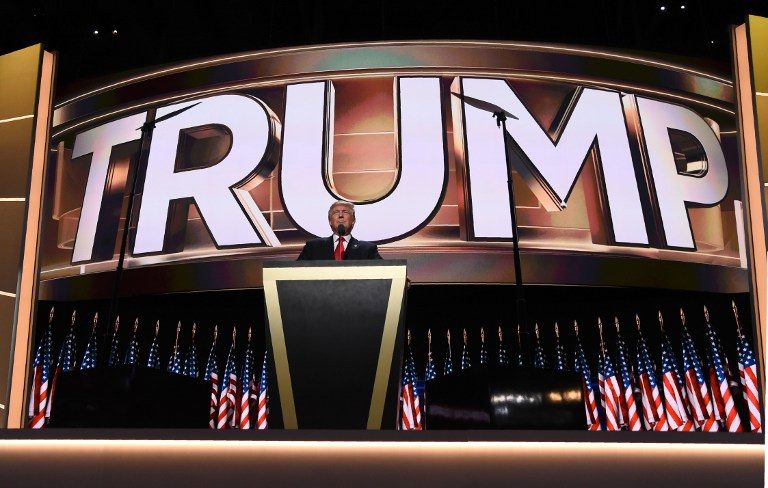SUMMARY
This is AI generated summarization, which may have errors. For context, always refer to the full article.

MARRAKESH, Morocco – The world expects the United States to uphold commitments under the landmark Paris climate treaty despite Donald Trump’s vow to pull out, the incoming head of its UN implementing body told Agence France-Presse (AFP) Friday, November 11.
“The Paris Agreement is here,” Moroccan foreign minister Salaheddine Mezouar, who took over stewardship of the 196-nation UN climate forum from France earlier this week, said in an interview.
“It’s entry into force means that governments must face up to their responsibilities.”
“It would be, I think, extremely difficult to retreat – there’s no turning back,” he added.
At UN headquarters in New York, meanwhile, Secretary-General Ban Ki-moon expressed confidence that US president-elect Trump will come to understand the “seriousness and urgency” of the deal.
The news that an avowed climate change denier had captured the US White House stunned participants arriving Wednesday, November 9, at the 12-day talks in Marrakesh, which run from November 7 to 18.
“There are two types of reaction: worry and determination to forge ahead,” said Segolene Royal, France’s foreign minister.
Delegates from several countries have taken a “wait-and-see” attitude after the victory by the New York real estate developer, who has said that climate change was a hoax perpetrated by the Chinese.
“We need to assess the situation when the new government comes into office,” in January 2017, said Chen Zhihua, a delegate from China’s National Development and Reform Commission. “There are too many uncertainties ahead.”
‘Wait and see’
Shigeru Ushio, a negotiator from Japan’s foreign ministry, also said his country would “wait and see” whether Trump’s climate policies will differ from his campaign rhetoric.
But if the United States reneges on a commitment to give poor countries 2.5 billion dollars (2.3 billion euros) to help them cope with climate impacts, he added, “that would cause difficulties.”
Under the Paris pact, rich countries have pledged at least 100 billion dollars a year starting in 2020.
In annex to the treaty, nations have also submitted voluntary pledges to cut the greenhouse gas emissions that cause dangerous global warming.
The agreement commits nations to collectively capping Earth’s average temperature increase at under two degrees Celsius (3.6 degrees Fahrenheit).
With 1.0C (1.8F) of warming to date, the world has already seen an uptick in deadly storms, droughts, heatwaves and flooding.
Mezouar has not yet reached out to Trump or his team, he told AFP.
“As the president of COP22” – the acronym for the 22nd meeting of the Conference of the Parties – “I am waiting with impatience to encounter the new American administration,” he told AFP.
“I have absolutely no doubt … that the United States will pursue its commitments alongside the rest of the international community.”
More ambitious pledges
A report Thursday, November 10, by 3 research groups, however, said the US was likely to miss its emissions reduction targets without new climate policies – which Trump has promised he would not put in place.
Experts and diplomats here insist that the global market-based transition from a fossil fuels to clean energy is too far advanced to peel back.
But Trump’s ascension has shaken hard-won political unity at the UN forum.
This uncertainty makes Mezouar’s role even more crucial, said Liz Gallagher, an analyst at London-based thinktank E3G.
“The Moroccans need to be more proactive in driving the process, using all the diplomatic tools at their disposal, to make sure we get a clear outcome,” she told AFP.
On Friday, ministers from a dozen nations and negotiating blocs – including France, Germany, Mexico, Bangladesh, the European Union, and the group of Least Developed Countries – issued a joint statement affirming their resolve.
“Our commitment to be climate leaders remains steadfast, as is our commitment to work with the whole international community, including the United States,” they said.
National carbon-cutting plans submitted under the Paris Agreement go into effect in 2020.
Some ministers arriving next week for a high-level session will announce more ambitious pledges, which still fall far short of what is needed to stave off devastating climate impacts. – Rappler.com
Add a comment
How does this make you feel?
There are no comments yet. Add your comment to start the conversation.